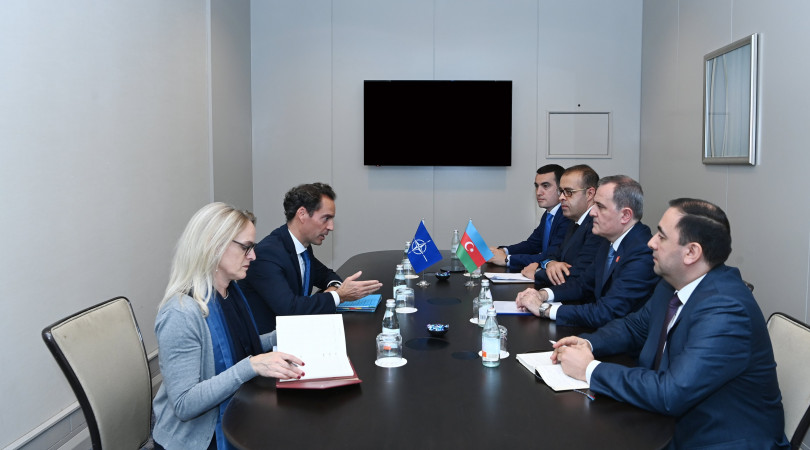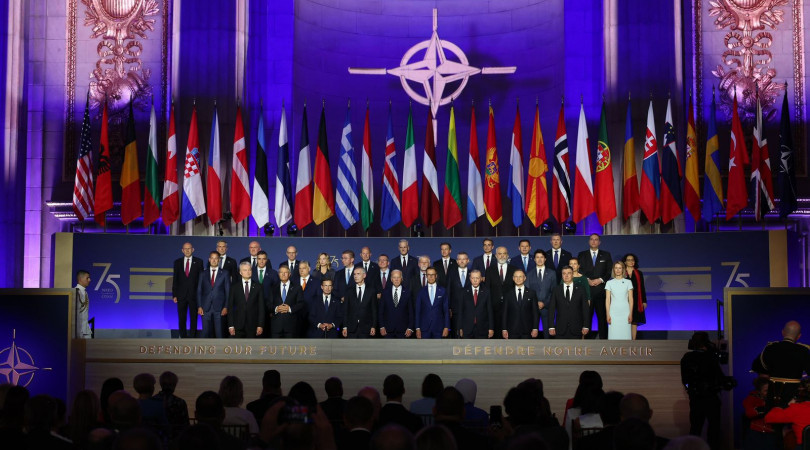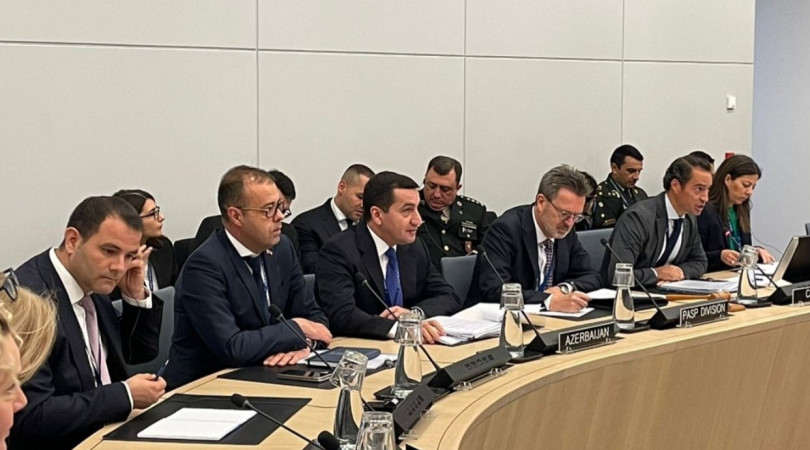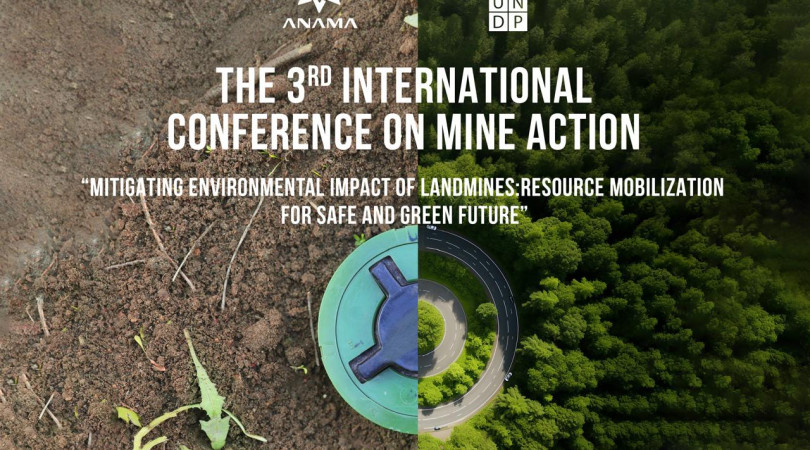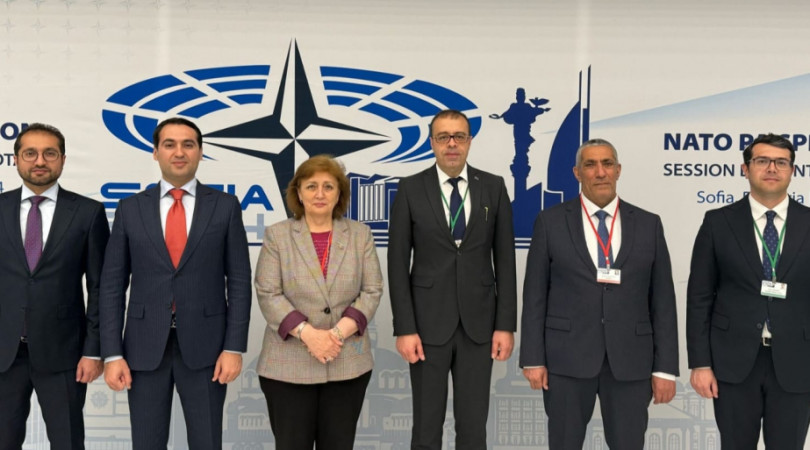Statement by Hikmat Hajiyev, Spokesperson of the Ministry of Foreign Affairs on occupation of Kalbajar region of Azerbaijan and April escalation of 2016
As part of war unleashed by Armenia against Azerbaijan and Armenia’s systematic policy of aggression and occupation against Azerbaijan on April 2, 1993 Kalbajar region of Azerbaijan was occupied by armed forces of Armenia. Kalbajar is located beyond administrative boundaries of Nagorno-Karabakh region of Azerbaijan and offensive operation to occupy Kalbajar was mainly carried out from the territory of Armenia by use of heavy weaponry, Mi-24 helicopter gunships and advanced fixed wing aircraft.
As a result of occupation around 60.000 Kalbajar population were subjected to ethnic cleansing and were expelled from their native lands, 511 innocent civilians were killed, 321 people were taken hostage or missing. Currently, more than 70.000 Kalbajar residents are living in many different regions of Azerbaijan as internally displaced people (IDP).
Private property of Kalbajar inhabitants were plundered and destroyed. Along with that center of Kalbajar region, around 150 villages, dozens of historical-cultural monuments, one museum, Istisu sanatorium, more than 110 libraries, around 100 schools, 9 kindergarten and hospitals were razed on the ground by the armed forces of Armenia. Serious damage was inflicted on rich historical-cultural heritage of Kalbajar.
The Museum of History in the Kalbajar district with its unique collection of ancient coins, ancient cemetery, Albanian cloister and churches in Vang village, Lech castle, Ulukhan castle, Galaboynu castle, Mosques in Kalbajar district and in the villages, Taglidash bridge, Cultural House after name of Ashig Shamshir and other historical monuments were destroyed by the armed forces of Armenia.
The original architectural features of the Ganjasar and Khudavank cloisters in Kalbajar region, belonging to the ancient Albanian Christian heritage of Azerbaijan and having no connection with the Armenian Church, were changed to incorporate them into the Armenian Church.
Predatory exploitation of natural mineral resources of Kalbajar is also being carried out. Base Metals CJSC, which is a wholly owned subsidiary of the Armenia's Vallex Group CJSC, registered in Liechtenstein, since 2002 has been exploiting Gyzylbulag underground copper-gold mine near Heyvaly village in the occupied Kalbajar district of Azerbaijan. Predatory exploitation of that mine led to its almost complete depletion.
Since 2007, GPM Gold, a subsidiary of GeoProMining Ltd., has been extracting ore in Soyudlu gold mine in the occupied Kalbajar district.
The construction of the Vardenis-Aghdara highway through the occupied Kalbajar district of Azerbaijan, is directly linked to gaining access to the areas in the occupied territories rich in natural resources and to facilitate exporting goods and minerals out of the occupied territories to Armenia and international markets.
As a result of predatory and illegal exploitation of mineral resources of Kalbajar serious damage has been inflicted on the environment.
Without due diligence imports of minerals, including gold extracted from the occupied Kalbajar and other regions of Azerbaijan, by some western countries are matter of serious concern.
By blatantly violating the international humanitarian law, Armenia transfers settlers and conducts demographic change of occupied Kalbajar region as it was also confirmed by OSCE fact-finding mission.
Following the statement of United Nations Security Council President on April 6, 1993 UNSC adopted resolution of 822 (1993) with regard to the occupation of Kalbajar region of Azerbaijan. UN Security Council Resolution 822 reaffirmed the principle of “the inadmissibility of the use of force for the acquisition of territory” and demanded immediate withdrawal of all occupying forces from the Kelbadjar district and other recently occupied lands of Azerbaijan.
Following the adoption of Security Council resolution 822 (1993), the CSCE Minsk Group, composed of the nine countries, worked out the “timetable of urgent steps” to implement the resolution. Instead of withdrawing its armed forces from the occupied territories of Azerbaijan as demanded by UNSCR Armenia on the contrary continued to occupy Agdam, Jabrayil, Gubadly, Fizuli and Zangilan regions of Azerbaijan in 1993.
In his report to the President of the Security Council dated 27 July 1993, the Chairman of the CSCE Minsk Conference, Mr. Mario Raffaelli, emphasized that the Armenian side had disregarded Security Council demands, launched an attack, seized new territories in Azerbaijan and challenged the mediation efforts towards a settlement.
Along with the resolution 822 UNSC adopted resolutions 853 (1993), 874 (1993) and 884 (1993) and demanded immediate, unconditional and full withdrawal of occupying forces all seized lands of Azerbaijan. However, Armenia until now continues to disregard the implementation UNSCR demands.
Escalation of the situation and attack of densely populated Azerbaijani civilians with heavy weapons along the line of contact by armed forces of Armenia on April 2, 2016 once again demonstrated that continuation of Armenia’s occupation of Azerbaijan’s lands and the illegal presence of armed forces of Armenia in the seized lands of Azerbaijan remains major threat to regional peace and security. In response to the attacks of Armenia, the armed forces of Azerbaijan have taken counter measures, which resulted in providing security of Azerbaijani civilians and liberation of strategically important lands of Azerbaijan from occupation.
Armenia has to understand that occupation of Azerbaijan’s lands, including Kalbajar region is temporary. The only way to achieve a durable and lasting settlement is to ensure the unconditional and complete withdrawal of the Armenian armed forces from the occupied territories of Azerbaijan, the exercise by the forcibly displaced population of its inalienable right to return. Armenian side, instead of wasting time and misleading its own people and the international community, must cease its policy of annexation and ethnic cleansing and comply with its international obligations and to engage constructively in the conflict settlement process.
All responsibility falls on Armenian side for the maintenance of status quo of occupation.

